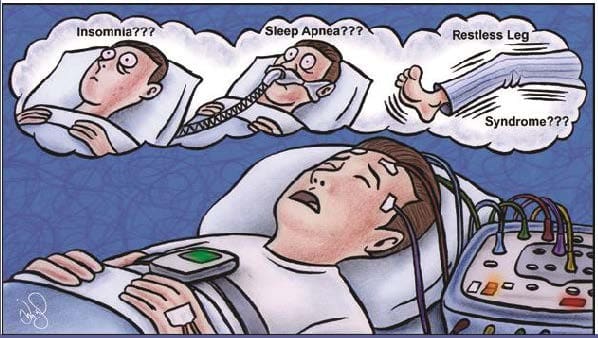Sleep problems are one of the most common problems for veterans. Many times, changes in schedule, environmental noise levels, and changes in pace can be enough to affect sleep. Veterans who suffer from sleep disorders understand how this is a common problem. A sleep disorder can often lead to other health problem down the road such as heart attacks or strokes. This blog will go over the different types of sleep disorders and symptoms a veteran can face.
Many times sleep disorders will develop while on active duty. Soldiers may undergo the stress of deployment and in many cases are exposed to combat. The rates of sleep disorders among combat soldiers are extremely high. Not only would deployments and/or combat stress cause sleep disorders, irregular work shift schedules during service can also throw off sleep. Military personnel often work on rotating shift schedules, both at home and overseas. This can put them at a greater risk for sleep difficulties and other health-related problems.
Both active duty personnel and veterans are at a significantly greater risk for developing sleep disorders than civilians. Sleep problems can often contribute to other health problems. This can complicate a soldier’s return home from deployment and create issues with adjusting to returning home and/or returning to civilian life. Sleep disorders can elevate the risk for a number of serious physical and mental health problems such as heart disease, post-traumatic stress disorder (PTSD), depression, traumatic brain injury and other service-related injuries and illnesses.
Different Types of Sleep Disorders
There are many different types of sleep disorders. Below are the most common that veterans experience:
- Insomnia: Veterans suffering from insomnia have trouble falling asleep for more than a few hours. This can lead to drowsiness, irritability and a depressed mood.
- Obstructive Sleep Apnea: This condition causes breathing to stop during sleep, either for a few seconds or several minutes. This causes fatigue, slow reflexes and eventually can impact the heart, causing arrhythmia and even cardiac arrest.
- Narcolepsy: Veterans suffering from this condition are extremely fatigued during daytime hours, no matter how many hours they sleep the night before. This disorder causes abrupt daytime unconsciousness and cataplexy, an episodic loss of muscle function from sagging facial muscles to physical collapse.
- Daytime somnolence or excessive daytime sleepiness (EDS): This condition is linked to each of the above-listed sleep disorders. This condition can also be diagnosed on its own. Veterans with EDS feel very drowsy during the day and often feel compelled to take naps at inappropriate times.
The frequency of sleep problems among military personnel and veterans is alarming. This strongly suggests the need for more attention directed towards treatment and prevention. A sleep study from 2010 examined the prevalence of sleep disorders among active duty military personnel who had been referred for sleep testing. Most of the soldiers had participated in combat activity on active duty. Researchers found more than 85 percent of this military personnel had a clinical disorder. This study showed that more than half of the soldiers were suffering from obstructive sleep apnea and close to one-quarter of them were suffering from insomnia. The study also showed that the average nightly sleep duration was less than six hours per night.
This study showed that 58 percent of the soldiers had other service related illness such as depression, PTSD, and traumatic brain injury. These alarming statics prove that it is important for any veteran suffering from a sleep disorder to get the treatment they need.



